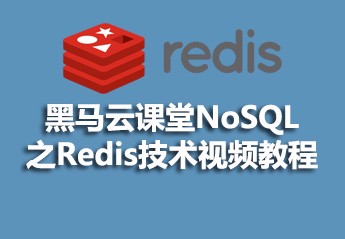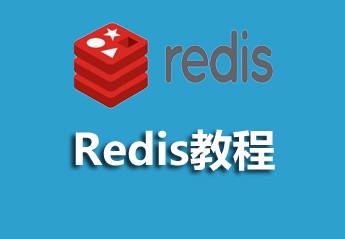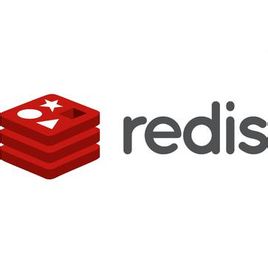5 good recommended practical video tutorials for learning redis
redis is a non-relational database. Its data is not stored on the hard disk, but cached in the memory, so the read and write speed is very fast. For example, the WeChat red envelope grabbing software has been very popular recently. It is to use redis technology. Redis is widely used in websites or software with high speed requirements. Today, PHP Chinese website recommends 5 good practical video tutorials for learning redis. I hope it can help beginners!
php Chinese website will launch a high-quality Redis tutorial in the near future. It will be updated here as soon as possible after the launch, so stay tuned! ! !
Latest course supplement
2021.8.4 New video tutorial: 《depth analysis of redis tutorial》
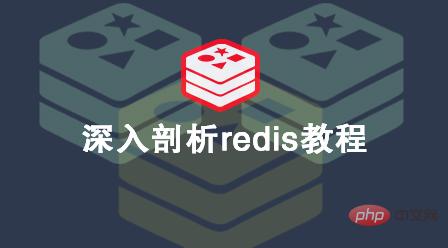
2019.10.8 New video tutorial: 《Redis basic video course》
The following are the video courses of PHP Chinese website from 2017 to 2018:
1. " Chuanzhi Podcast redis basic video tutorial"
"Chuanzhi Podcast Redis Basics Video Tutorial" You can learn the installation, configuration and specific use of redis technology. You can learn that redis supports various different ways of sorting. Like memcached, data is cached in memory to ensure efficiency. The difference is that redis will periodically write updated data to disk or write modification operations to additional record files, and on this basis, master-slave (master-slave) synchronization is achieved.
2. "黑马云Classroom NoSQL Redis Technology Video Tutorial"
Through "Black Horse Cloud By studying the "Redis Technology Video Tutorial on NoSQL Classroom", you will learn about the installation, type and operation of Redis in PHP, etc.
3. "Yan Shiba redis video tutorial"
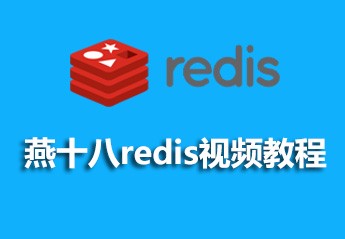
You can learn through "Yan Shiba redis video tutorial" 1. Five data types of redis 2. Extended installation of redis in php 3. Advanced usage of redis.
4.《Redis Online Manual Tutorial》
When we learn Redis, we will understand the characteristics of Redis. Master the basic operations of Redis, and learn how to operate REdis in JAVA and PHP.
5. "Redis Native Reference Manual"
"Redis Native Reference Manual" provides Redis Basic tutorials, Redis command operation tutorials, and Redis advanced tutorials are welcome to learn and refer to!
For more Redis video tutorials, please visit the php Chinese website: Redis video tutorial
[Related recommendations]
1. The 4 most classic MySQL database construction and management tools recommended in 2017
2. The 6 best PHP environment construction tools in 2017 Recommended
4. The most recommended in 2017 5 mysql database learning tutorials

Hot AI Tools

Undresser.AI Undress
AI-powered app for creating realistic nude photos

AI Clothes Remover
Online AI tool for removing clothes from photos.

Undress AI Tool
Undress images for free

Clothoff.io
AI clothes remover

Video Face Swap
Swap faces in any video effortlessly with our completely free AI face swap tool!

Hot Article

Hot Tools

Notepad++7.3.1
Easy-to-use and free code editor

SublimeText3 Chinese version
Chinese version, very easy to use

Zend Studio 13.0.1
Powerful PHP integrated development environment

Dreamweaver CS6
Visual web development tools

SublimeText3 Mac version
God-level code editing software (SublimeText3)

Hot Topics
 1386
1386
 52
52
 How to build the redis cluster mode
Apr 10, 2025 pm 10:15 PM
How to build the redis cluster mode
Apr 10, 2025 pm 10:15 PM
Redis cluster mode deploys Redis instances to multiple servers through sharding, improving scalability and availability. The construction steps are as follows: Create odd Redis instances with different ports; Create 3 sentinel instances, monitor Redis instances and failover; configure sentinel configuration files, add monitoring Redis instance information and failover settings; configure Redis instance configuration files, enable cluster mode and specify the cluster information file path; create nodes.conf file, containing information of each Redis instance; start the cluster, execute the create command to create a cluster and specify the number of replicas; log in to the cluster to execute the CLUSTER INFO command to verify the cluster status; make
 How to clear redis data
Apr 10, 2025 pm 10:06 PM
How to clear redis data
Apr 10, 2025 pm 10:06 PM
How to clear Redis data: Use the FLUSHALL command to clear all key values. Use the FLUSHDB command to clear the key value of the currently selected database. Use SELECT to switch databases, and then use FLUSHDB to clear multiple databases. Use the DEL command to delete a specific key. Use the redis-cli tool to clear the data.
 How to read redis queue
Apr 10, 2025 pm 10:12 PM
How to read redis queue
Apr 10, 2025 pm 10:12 PM
To read a queue from Redis, you need to get the queue name, read the elements using the LPOP command, and process the empty queue. The specific steps are as follows: Get the queue name: name it with the prefix of "queue:" such as "queue:my-queue". Use the LPOP command: Eject the element from the head of the queue and return its value, such as LPOP queue:my-queue. Processing empty queues: If the queue is empty, LPOP returns nil, and you can check whether the queue exists before reading the element.
 How to use the redis command
Apr 10, 2025 pm 08:45 PM
How to use the redis command
Apr 10, 2025 pm 08:45 PM
Using the Redis directive requires the following steps: Open the Redis client. Enter the command (verb key value). Provides the required parameters (varies from instruction to instruction). Press Enter to execute the command. Redis returns a response indicating the result of the operation (usually OK or -ERR).
 How to use redis lock
Apr 10, 2025 pm 08:39 PM
How to use redis lock
Apr 10, 2025 pm 08:39 PM
Using Redis to lock operations requires obtaining the lock through the SETNX command, and then using the EXPIRE command to set the expiration time. The specific steps are: (1) Use the SETNX command to try to set a key-value pair; (2) Use the EXPIRE command to set the expiration time for the lock; (3) Use the DEL command to delete the lock when the lock is no longer needed.
 How to read the source code of redis
Apr 10, 2025 pm 08:27 PM
How to read the source code of redis
Apr 10, 2025 pm 08:27 PM
The best way to understand Redis source code is to go step by step: get familiar with the basics of Redis. Select a specific module or function as the starting point. Start with the entry point of the module or function and view the code line by line. View the code through the function call chain. Be familiar with the underlying data structures used by Redis. Identify the algorithm used by Redis.
 How to solve data loss with redis
Apr 10, 2025 pm 08:24 PM
How to solve data loss with redis
Apr 10, 2025 pm 08:24 PM
Redis data loss causes include memory failures, power outages, human errors, and hardware failures. The solutions are: 1. Store data to disk with RDB or AOF persistence; 2. Copy to multiple servers for high availability; 3. HA with Redis Sentinel or Redis Cluster; 4. Create snapshots to back up data; 5. Implement best practices such as persistence, replication, snapshots, monitoring, and security measures.
 How to use the redis command line
Apr 10, 2025 pm 10:18 PM
How to use the redis command line
Apr 10, 2025 pm 10:18 PM
Use the Redis command line tool (redis-cli) to manage and operate Redis through the following steps: Connect to the server, specify the address and port. Send commands to the server using the command name and parameters. Use the HELP command to view help information for a specific command. Use the QUIT command to exit the command line tool.




